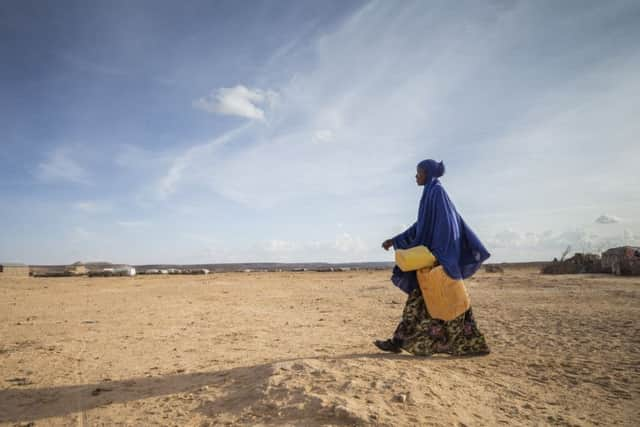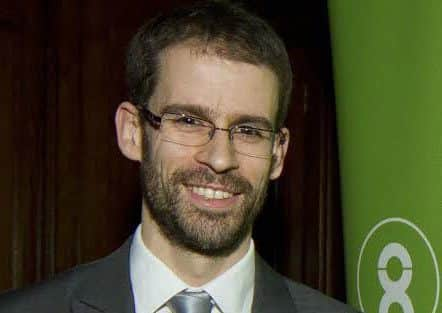Jamie Livingstone: Time is running out to tackle climate change '“ Scotland can lead the way
The threat we’re facing is our changing climate.
I know, you’ve probably heard it all before – ‘act now, or it’ll be too late’.
There’s no escaping the reality that climate change is already wreaking havoc across our planet – but now the world’s leading climate scientists have told us that it can get much, much worse.


Advertisement
Hide AdAdvertisement
Hide AdIn October, the United Nations’ Intergovernmental Panel on Climate Change (IPCC) issued a stark warning: we have just over a decade to get our environmental act together or we face catastrophe.
The IPCC is the leading world body for assessing the science related to climate change, its impacts and potential future risks, and the possible responses.
These people know what they’re talking about, and they are talking to each of us. Their warning shouldn’t come as a surprise.
From the dramatic rains of hurricanes – Florence, Harvey, and Irma all hit within 12 months – to the extreme droughts in East Africa, we are witnessing our new climate reality unfolding in real time. Rising global temperatures mean erratic weather patterns; droughts, heat waves, hurricanes and flooding, will only become more frequent and more devastating.


Climate change is increasingly impacting all of us, but we know that of those being battered, most live in some of the world’s poorest countries, and that women are worst affected.
A couple of years ago I saw for myself the devastating impact extreme weather is having; travelling to Malawi amid a deep food crisis that left 6.5 million people hungry.
I met Jenipher, a smallholder farmer looking after three orphaned nephews. Her crop was destroyed by drought and she had no idea where her family’s next meal was coming from. Her despair was palpable.
Despite having done the least to create the problem, some of the world’s poorest and lowest emitting countries are now leading the climate fight – including Fiji and the Marshall Islands, which recently committed to reduce emissions to net zero by 2050.
Advertisement
Hide AdAdvertisement
Hide AdIt’s time for all rich countries to follow suit and show how they’ll clean up and reduce their net greenhouse gas emission to net zero within a generation. No excuses, no small print, no ambiguity, just clear, simple, unequivocal net-zero legislation.
We know that ultimately, if global warming is to be limited to 1.5C – still hugely damaging levels for the world’s poorest people, but not catastrophic – then it’s the laws and targets set by rich countries which matter most. Every year we delay costs lives.
Countries like Scotland, which claim to be leaders in tackling climate change, have a moral obligation to lead the way.
We have made progress, but not enough. As MSPs consider the Scottish Government’s proposed new climate change law, they must ask themselves whether it’s ambitious enough to address the grave challenge we’re facing. Will Parliament throw a lifeline to people like Jenipher? Will they offer her family, and all those living on the frontline, some long overdue climate justice?
MSPs must be honest enough to say that our society – individuals, businesses, charities, and governments – needs to change fundamentally.
The Scottish Government needs to set stretching, binding targets for emission reductions. Anything short of a legally binding target to reduce Scotland’s greenhouse gas emissions to net zero by 2050 at the latest will be wholly insufficient.
While targets need to be informed by science, leadership sometimes requires bravery too and that means pushing beyond what we know we can do now, to what we must do in the future. Climate impacts aren’t a distant future threat: they are here, they hurt those least responsible, and this is only the beginning.
The way that Scotland, and the rest of the international community, responds is a litmus test for our humanity. It’s a mission we can’t afford to fail. Want Scotland to take bold action on climate change? Email your MSPs today: http://bit.ly/OxfamScotlandClimate
Jamie Livingstone, head of Oxfam Scotland.